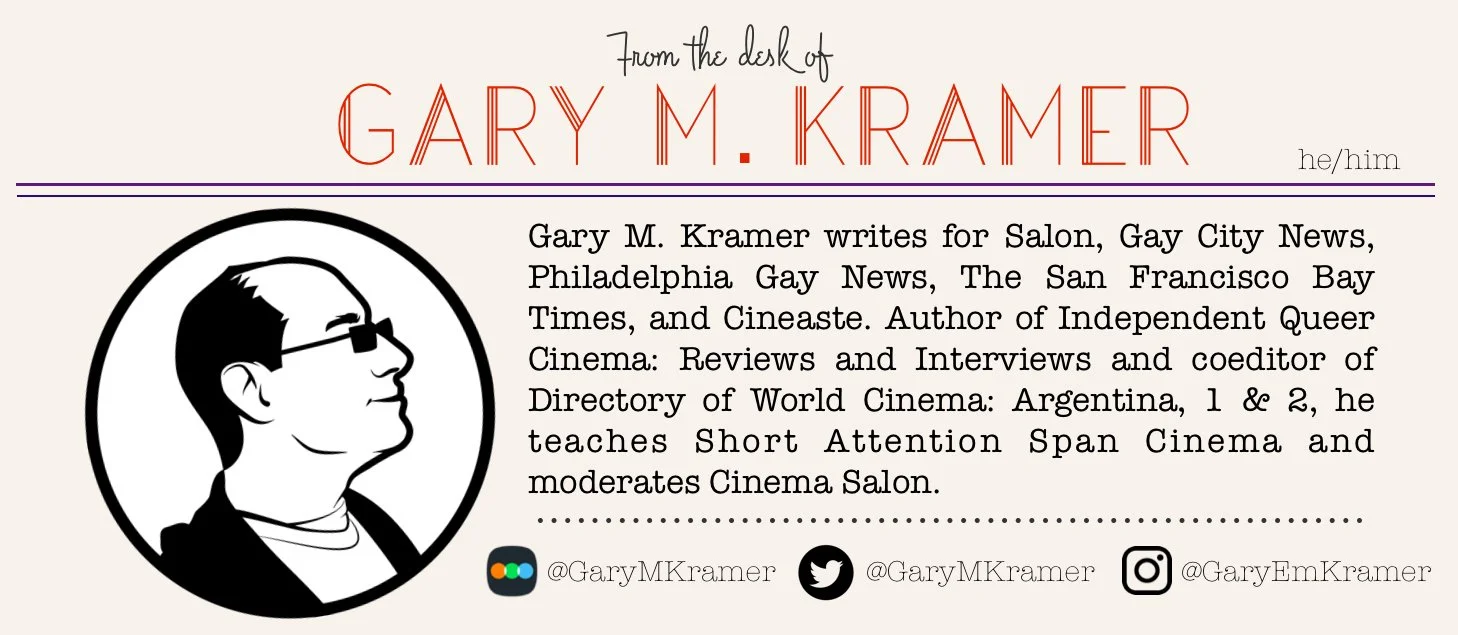BETWEEN TWO WORLDS works on the personal level, but avoids deeper issues
Between Two Worlds
Directed by Emmanuel Carrère
Written by Emmanuel Carrère, and Hélène Devynck
Starring: Juliette Binoche, Hélène Lambert, Léa Carne
Unrated
Runtime: 1 hour, 46 minutes
Now playing in select theaters; expanding August 25 and September 1 to additional markets
by Gary M. Kramer, Staff Writer
Like a French Barbara Ehrenreich (author of Nickel and Dimed), Marianne Winckler (Juliette Binoche), is a writer who goes undercover as a cleaner (aka “maintenance agent”) to expose the reality of the working poor—people who toil hard and for long hours and yet make only minimum wage.
Between Two Worlds opens with Marianne at an employment agency in Caen hoping to find work. In her interview, she claims she has to start her life over after decades of not working; this is why she is applying for a cleaning position. But really, Marianne is eager to get her hands dirty because working these jobs will put her in contact with the women (and men) who do this work for a living. She wants to make the “invisible visible,” and needs to live and work alongside them to capture these people’s experiences honestly. (Even if she is being “dishonest” in the process).
After taking a training class and applying for hourly jobs that pay 7.96 Euros per hour after taxes, she is hired by a company but quickly fired for being rude to two managers. She eventually finds a job cleaning on a ferry, and befriends her colleagues, Chrystèle (Hélène Lambert) and Marilou (Léa Carne), among others. Marianne also meets a handful of other workers, including Cédric (Didier Pupin), who has a crush on her, and a woman who gives her a car which helps her get to work, and give Chrystèle a ride as well.
The scenes of Marianne working, making beds on the ferry—230 room a night, 4 minutes per room—are powerful. There is a “hellish rhythm” to the work, and viewers can feel the palpable effort that goes into the labor. And Marianne’s voiceover recounts the aching and shaking arms long after the work is done for the night. She also observes that cleaning bathrooms is dirtier work, but it is also less exhausting.
Between Two Worlds is very much about the work, but it is also about the workers. As Marianne gets to know the crew—as when they all go out bowling one night—and she listens to their dreams and lottery fantasies. She admires these men and women who have a dignity to them that she wants to capture in her book.
Marianne gets particularly inspired by Chrystèle. As she comes to know this young woman, with three young sons, and develops a real friendship with her. They go to the beach one afternoon, and Chrystèle has a moment to herself. She repays Marianne’s kindness with a gift one afternoon, in a very moving scene.
Binoche, deglamorized, is convincing throughout the film, even if she is always Juliette Binoche. The film creates some tension around if/when she will reveal her true intentions to her colleagues and what their reactions will be, as when she admits to Chrystèle that she once lived with a wealthy man and had a cleaning woman. There is also an ethical question raised about Marianne working a job that someone else might need more—but the film justifies her position because she needs to know firsthand what this work is and who does it.
However, many of the issues that could or should be raised in the film are not. There is no discussion of immigrants (undocumented or otherwise) who take these kinds of menial jobs. And the difficulties Marianne faces with the boss who belittles her early in the film is almost the only struggle with management depicted. Between Two Worlds also misses the opportunity to address some of the real concerns employees have about labor conditions, unionization, or wages.
Upward mobility is hinted at in an early training scene, and perhaps realized later when a colleague from the ferry cleaners leaves for another position. In contrast, Chrystèle declares that she will probably never (be able to) leave her job. And that is the real point here: How does one slave away for minimum wage without any hope of escaping poverty? Perhaps Florence Aubenas addressed these topics in greater detail in her book, but in the film, the characters admit having to make sacrifices—"no [buying] clothes, no [having] fun”—because that all costs money.
Between Two Worlds also glosses over some of the findings that might be valuable. How does Chrystèle support her three young kids on her meager salary? Cédric says his poverty is such that he was unable to borrow money to pay 250 Euros to recover his car when it was towed. Other hardships are mentioned, but the film does not dwell on them too much; they just become anecdotes for Marianne’s book.
Eventually—and this is hardly a spoiler—Marianne’s truth is revealed, and it does cause the expected conflict between her and Chrystèle. How that plays out forms the emotional core of the film. To the film’s credit, Binoche and Lambert are excellent in their scenes together, which is why the film, despite its narrative flaws, is so compelling.
Between Two Worlds certainly will make viewers appreciate the hardscrabble lives of the working poor. It may even prompt folks to read Aubenas’s book, or Ehrenreich’s, for more insights.


